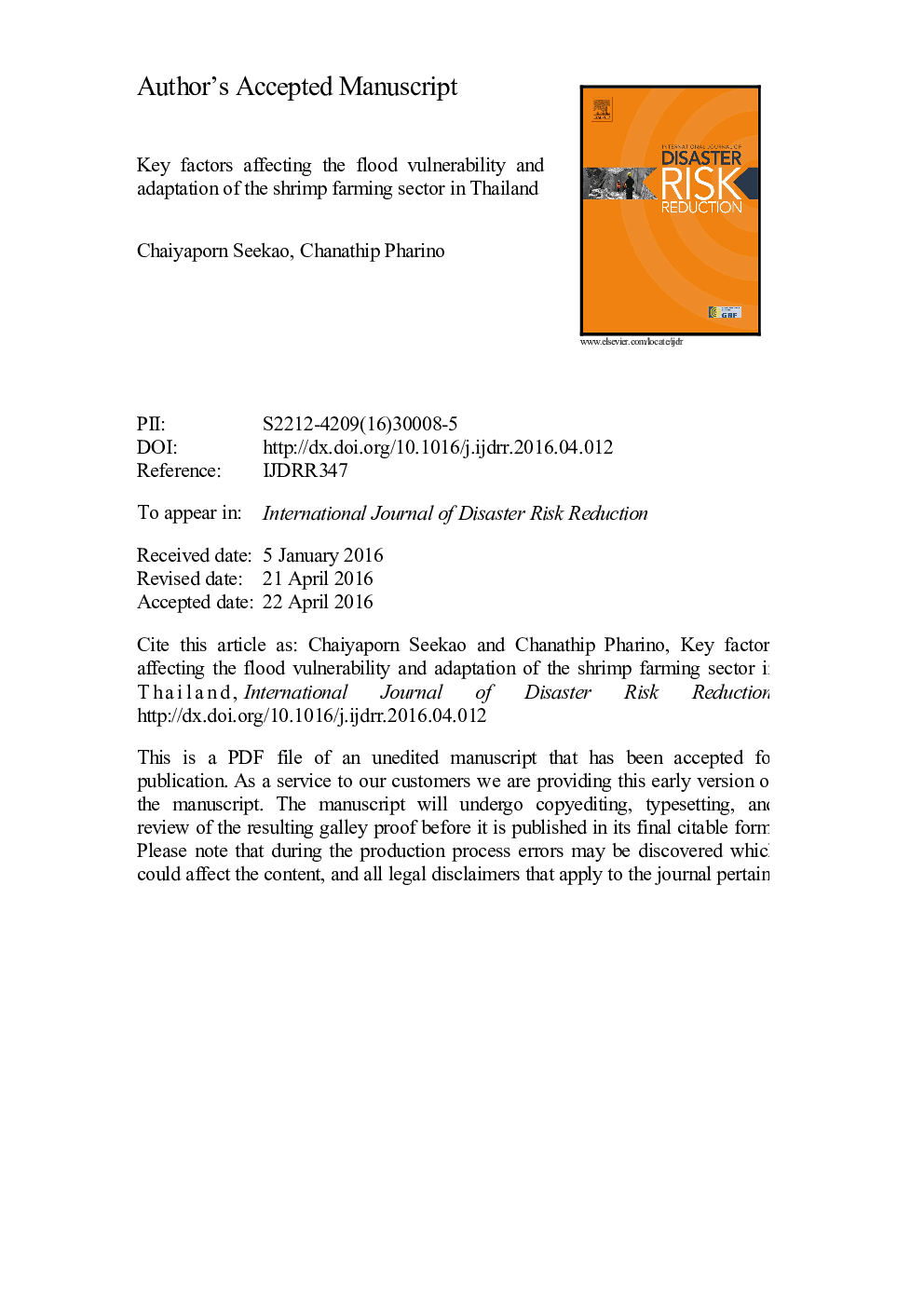| Article ID | Journal | Published Year | Pages | File Type |
|---|---|---|---|---|
| 7472600 | International Journal of Disaster Risk Reduction | 2016 | 24 Pages |
Abstract
Increasing climate variability, particularly flooding, severely impacts shrimp production yields and global seafood supply. Effective reduction of the impacts of flood vulnerability depends on level and readiness of the adaptive capacity. This study investigated key factors affecting the adaptive capacity of shrimp farmers in Thailand. This case study focused on the largest shrimp farming areas at a provincial level. Data collection was carried out using questionnaires and person-to-person interviews. Approximately 100 shrimp farmers who had experienced previous flood events were interviewed to help classify the impact scales of key factors on adaptation. Five socio-economic characteristics (education level, farming experience, income level, farm size, and supplemental occupations) are important factors in making the decision to apply adaptive alternatives. Currently, the main adaptive practices employed by shrimp farmers in the study area are placing nets around ponds and constructing dykes to enclose shrimp ponds. However, poverty and limited access to financial resources are the major constraints affecting the adaptive capacity to combat future flooding events. For farmers whose farms are located in vulnerable areas and who have limited financial resource, an implementation of non-structural techniques, such as changing crop patterns and altering harvest seasons, should be promoted.
Related Topics
Physical Sciences and Engineering
Earth and Planetary Sciences
Geophysics
Authors
Chaiyaporn Seekao, Chanathip Pharino,
